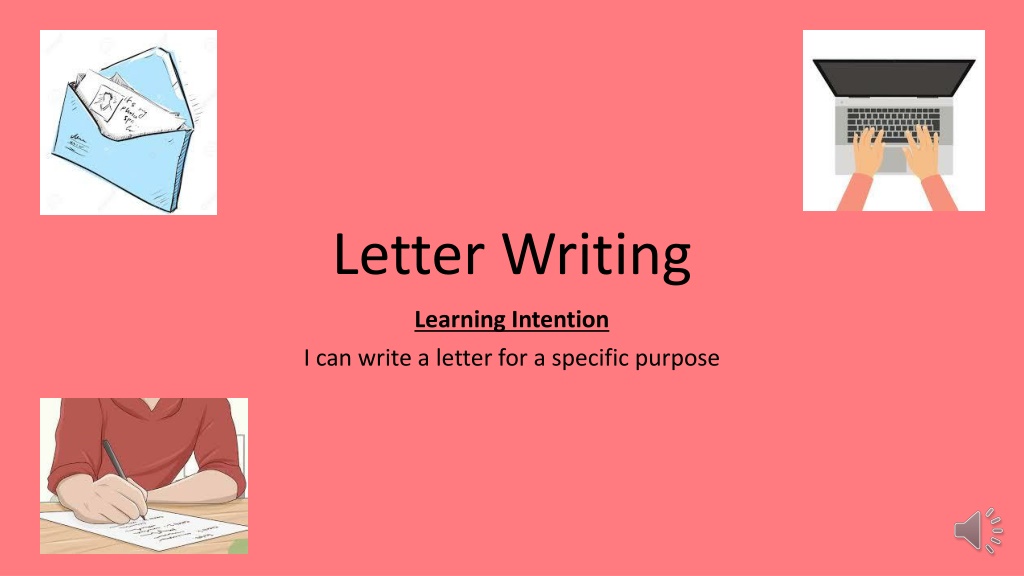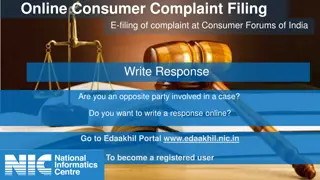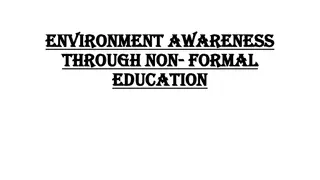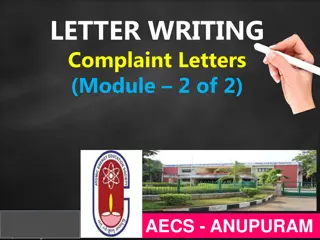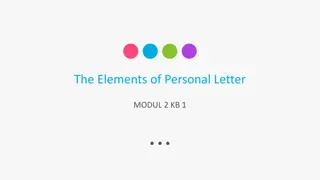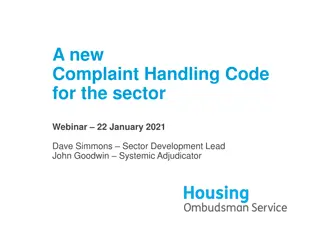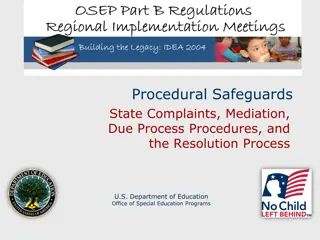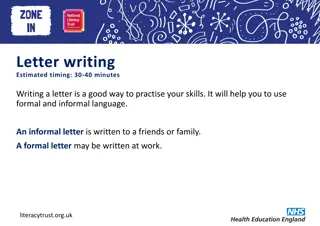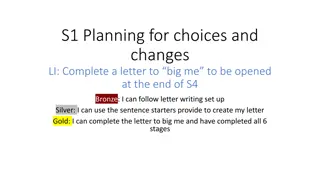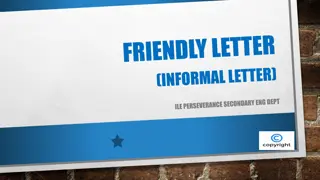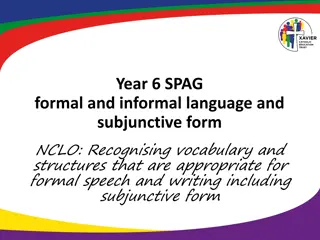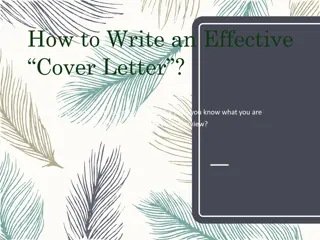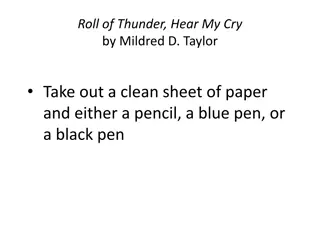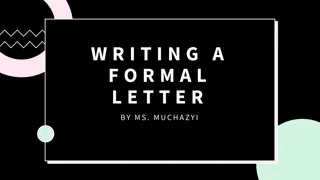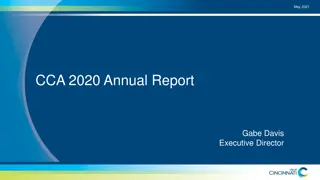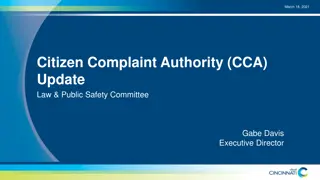Learning to Write a Formal Letter of Complaint
Explore the process of writing a formal letter of complaint with the help of visual aids and an example scenario. Learn about the structure and key components of such letters, including addressing the issue, expressing concerns, and requesting resolution. Enhance your letter-writing skills by understanding the importance of correct layout, address, greeting, opening, conclusion, and closing in a formal complaint letter.
Download Presentation

Please find below an Image/Link to download the presentation.
The content on the website is provided AS IS for your information and personal use only. It may not be sold, licensed, or shared on other websites without obtaining consent from the author. Download presentation by click this link. If you encounter any issues during the download, it is possible that the publisher has removed the file from their server.
E N D
Presentation Transcript
Letter Writing Learning Intention I can write a letter for a specific purpose
For this task you will need - a piece of paper / jotter - pencil
We have written lots of different types of letters. Some formal, some informal. Today s letter is a formal letter as you will be writing a letter of complaint.
Can you think of any examples of when you may have to write a letter of complaint? Write down any ideas that you think of.
Here is an example of a letter of complaint. What do you notice about it?
Every letter must have - correct layout - address - greeting - opening - conclusion - close - paragraphs Let s go over what this looks like again
Address Date Greeting Opening tell them who you are and why you are writing Main text in PARAGRAPHS Conclusion Close
A letter of complaint follows the same structure and layout as any other formal letter but there are a few other things that you will need to include. Let s hear the problem that you are going to write a letter of complaint about
You have ordered some tasty lunch from your favourite caf to be delivered to your house. You cannot wait to eat it and you are SO hungry. After an hour your food finally arrives and you open it all up to find you have received the wrong order! You ring up the caf to let them know about the problem. You tell them that you have received the wrong order but they don t see the big deal! They ask if you can just eat the order that you received anyway. You are appalled as you received a chicken sandwich and you are a vegetarian. You ask them very politely to send another sandwich to your home as you have not got what you paid for. The shop assistant gives a big sigh and says Fine, I ll do that! . You re not very happy with the way the shop assistant has spoken to you but you thank them and wait for your delivery to arrive with the correct sandwich. 30 minutes later your delivery arrives, by this point you are extremely hungry! You open it up and find another chicken sandwich! By this point you are too hungry to wait any longer and you end up making your own lunch. You decide that the best thing to do is to send a letter of complaint to the caf manager.
What kind of things might you want to include in your letter? Jot down any ideas you have on to your piece of paper. You may wish to write a list or even a mind map.
Here is some helpful vocabulary that you may wish to use in your letter of complaint to share how you are feeling - Can you think of any others? disappointed appalled upset outraged devastated shocked
Paragraph suggestions Paragraph 1 Say why you are writing a letter of complaint and give evidence. The manager knows nothing about the situation so you need to be detailed. Paragraph 2 Share your feelings about the situation. Ask any questions you have. You may even wish to use rhetorical questions. Paragraph 3 Tell the manager what you expect to happen or want to happen. Are you expecting a discount for your next order? A refund for your order? Something else? You will want to sum up your feelings here too.
Learning Intention I can write a letter for a specific purpose Success Criteria Address correct layout Address Greeting opening close / conclusion paragraphs Date Greeting Opening tell them who you are and why you are writing Main text in PARAGRAPHS Conclusion Close
You should now be ready to write your letter. Feel free to listen to the lesson again or go over any areas you are not sure about. Remember to check over the success criteria to make sure you are including everything you need.
Well done Primary 5! To finish, I would like you to give your letter one star and one wish.
